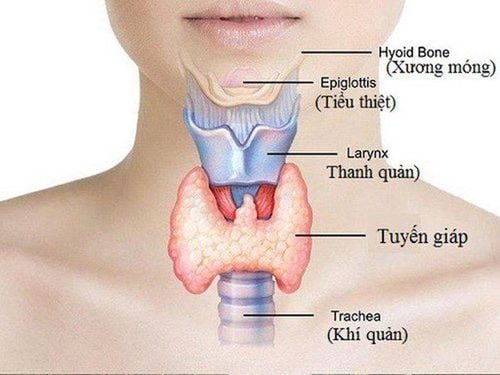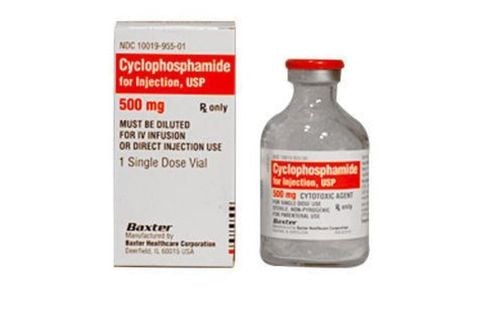This is an automatically translated article.
Cancer treatment in general and thyroid cancer treatment in particular is a long-term process depending on the stage of the disease, the patient's choice and advice on treatment methods, as well as the cancer treatment route. Thyroid letter of the specialist doctor. When making treatment plan decisions, clinical trials are an option to consider treatment and care for all stages of cancer.
1. Overview of treatments
In most cases of thyroid cancer, a team of experts will sit down to discuss and come up with an overall treatment plan, combining many different treatment methods.
For thyroid cancer, this team of specialists will include surgeons, oncologists, radiologists, endocrinologists... in conjunction with an oncology care team Cancer includes physician assistants, nurses, nurses, pharmacists, nutritionists...
Thyroid cancer often cannot be treated with a single method but must combine many different methods. The selection of these methods should be based on a number of factors, including:
Type of cancer and stage of thyroid cancer Possible side effects Patient and family requirements The patient's current health The patient will be entitled to recommend treatment as well as the desired course of treatment and to be informed of the treatment goals.
Treatments are usually selected based on a standard available by specialists. Although most thyroid cancers are curable, there are differences of opinion in the treatment process, especially when it comes to choosing which method and when.

Bệnh ung thư tuyến giáp cần được phát hiện sớm và điều trị kịp thời
2. Surgical method
Surgery is the method of completely removing the tumor and part of the surrounding thyroid gland. This is the main treatment for most people with thyroid cancer. Depending on the size of the tumor, common surgical options include:
One-lobectomy: As is known, the thyroid gland is made up of two lobes, left and right. This technique will remove the side of the body containing the cancer cells from the body Most of the thyroidectomy: A surgical procedure that removes almost all of the patient's thyroid gland, leaving only a small part of it. Thyroid: This technique removes the patient's entire thyroid gland. The hormones produced by the thyroid gland are then taken orally or injected. There are many different surgical techniques used to remove the thyroid gland including:
Standard surgery: A small incision in the middle of the neck allows the doctor to directly remove part or all of the thyroid gland. At present, this technique is rarely applied due to its invasiveness as well as scarring on the neck. Laparoscopic thyroid surgery: is the method currently applied popularly. Make a small incision in the neck enough to insert the endoscope and perform a surgical procedure based on the images provided by the camera attached to the endoscope. Robotic surgery: An incision will be made in a less noticeable place if it leaves a scar like the armpit or chest. The robot will then perform the thyroidectomy. However, this technique is often not preferred for thyroid cancer surgery
Complications of thyroid surgery include damage to nearby glands or organs, hypercalcemia, or surgical site infection.... If the laryngeal nerves are damaged during surgery. Patients may lose their voice temporarily or permanently.
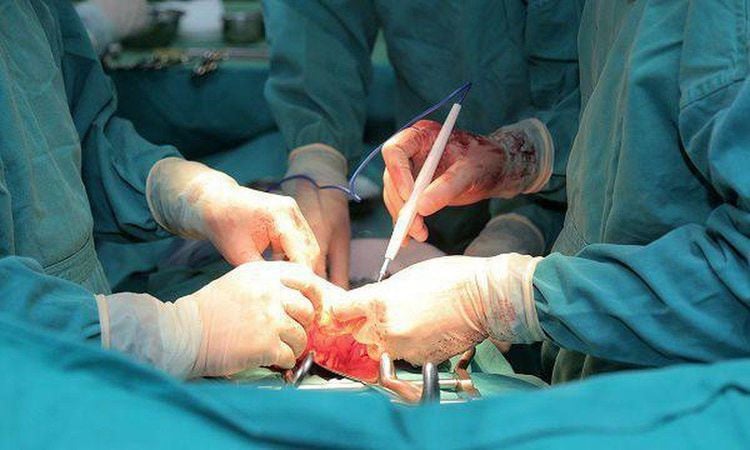
Phương pháp phẫu thuật có thể được chỉ định trong điều trị Ung thư tuyến giáp
3. Hormone Treatments
Patients after surgical treatment will be provided with a lifetime thyroid hormone therapy. In addition to replacing thyroid hormones, especially T3 and T4, this therapy also helps slow the growth of any cancer cells that remain after the thyroid gland is removed. The most commonly used hormone replacement is levothyroxine in tablet form and prescribed to be taken daily at the same time. Thyroid hormone replacement is done by an endocrinologist.
Some of the side effects of this treatment are bad interactions with other medications the patient is taking. Hormone therapy can also cause patients to have hyperthyroidism, which manifests through symptoms such as weight loss, tachycardia, chest pain, diarrhea, etc. or hypothyroidism, which manifests as fatigue, increased weight, dry skin and mucous membranes...
The amount and dosage of hormones are also different for each type of thyroid cancer, the patient's age or current health status. Your doctor will regularly monitor hormone levels through regular blood tests to adjust the dosage accordingly.
4. Radioiodine treatment
The thyroid gland absorbs most of the iodine from food entering the body. So a type of radiation therapy called radioactive iodine can find and destroy thyroid cells without surgery. Iodine radiotherapy is often indicated for patients with papillary thyroid cancer, cystic and hurthle cell carcinoma. In addition, this method is also used to treat people with differentiated thyroid cancer that has spread to lymph nodes and other organs.Radioiodine therapy can be given in liquid or tablet form. Patients also need to be hospitalized for about 2-3 days each session and limit contact with others during treatment to avoid harmful effects from iodine radiation. In addition, before that, the patient was also asked to limit iodine in the diet as well as temporarily stop taking thyroid hormone replacement medication.
The side effects of this method are nausea or vomiting, pain, swelling in the neck where the thyroid gland is located, inflammation of the salivary glands. Large cumulative doses of radioactive iodine can lead to infertility, especially in men. Women should also avoid becoming pregnant for at least 1 year after radioactive iodine treatment.
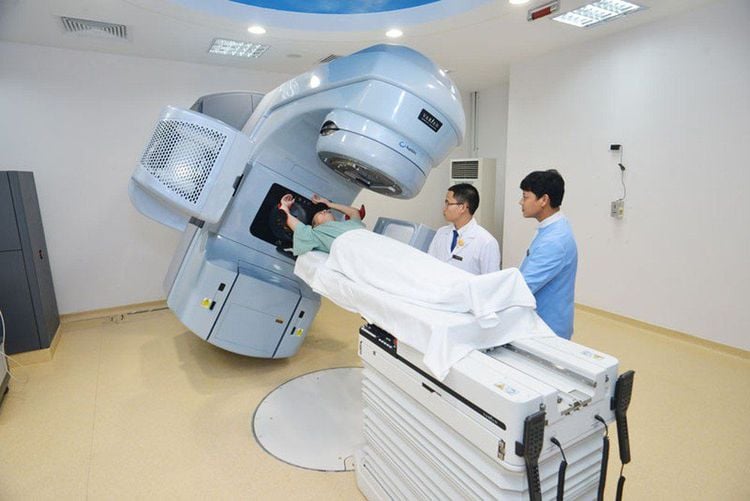
Phương pháp điều trị phóng xạ được chỉ định trong điều trị ung thư tuyến giáp
5. Radiotherapy treatments
Radiation therapy is a method of using high-energy X-rays directly into the body to destroy cancer cells. For thyroid cancer, radiation therapy is only indicated in certain cases, typically late-stage cancer when cancer cells have spread to important organs such as the trachea or esophagus. . Radiation therapy is usually given after surgery and focuses only on a specific area and is not indicated for younger patients.Side effects of radiation therapy depend on the dose and the area treated. Some of them can be redness of the skin, pain when speaking or swallowing, nausea, fatigue... Most of these side effects will go away after each treatment ends.
6. Chemotherapy
Chemotherapy is a method of using drugs to kill cancer cells by inhibiting their growth and division. A chemotherapy regimen is a combination of many different drugs in treatment.Side effects of chemotherapy depend on the individual as well as the dose of the drug used. Side effects of chemotherapy can include fatigue, infection, nausea and vomiting, hair loss, loss of appetite or diarrhea... Similar to radiation therapy, the side effects of chemotherapy. disappears after the patient stops taking the drug.
Treatment for thyroid cancer is not always effective, especially when the cancer has reached the metastatic stage. The most important thing is to always stay optimistic and follow the treatment prescribed by the doctors. Treatments can also bring some side effects, but patients should not worry too much about those problems. The side effects will quickly disappear once the treatment is over.
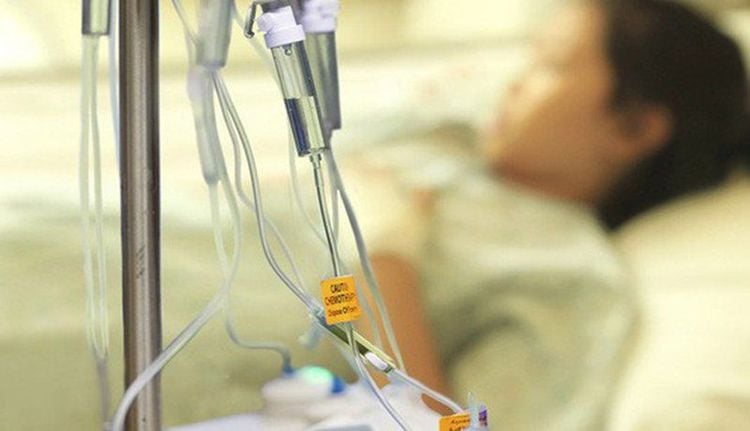
Một số người bệnh có thể được điều trị ung thư tuyến giáp bằng phương pháp hóa trị
Please dial HOTLINE for more information or register for an appointment HERE. Download MyVinmec app to make appointments faster and to manage your bookings easily.
Reference source: cancer.net




